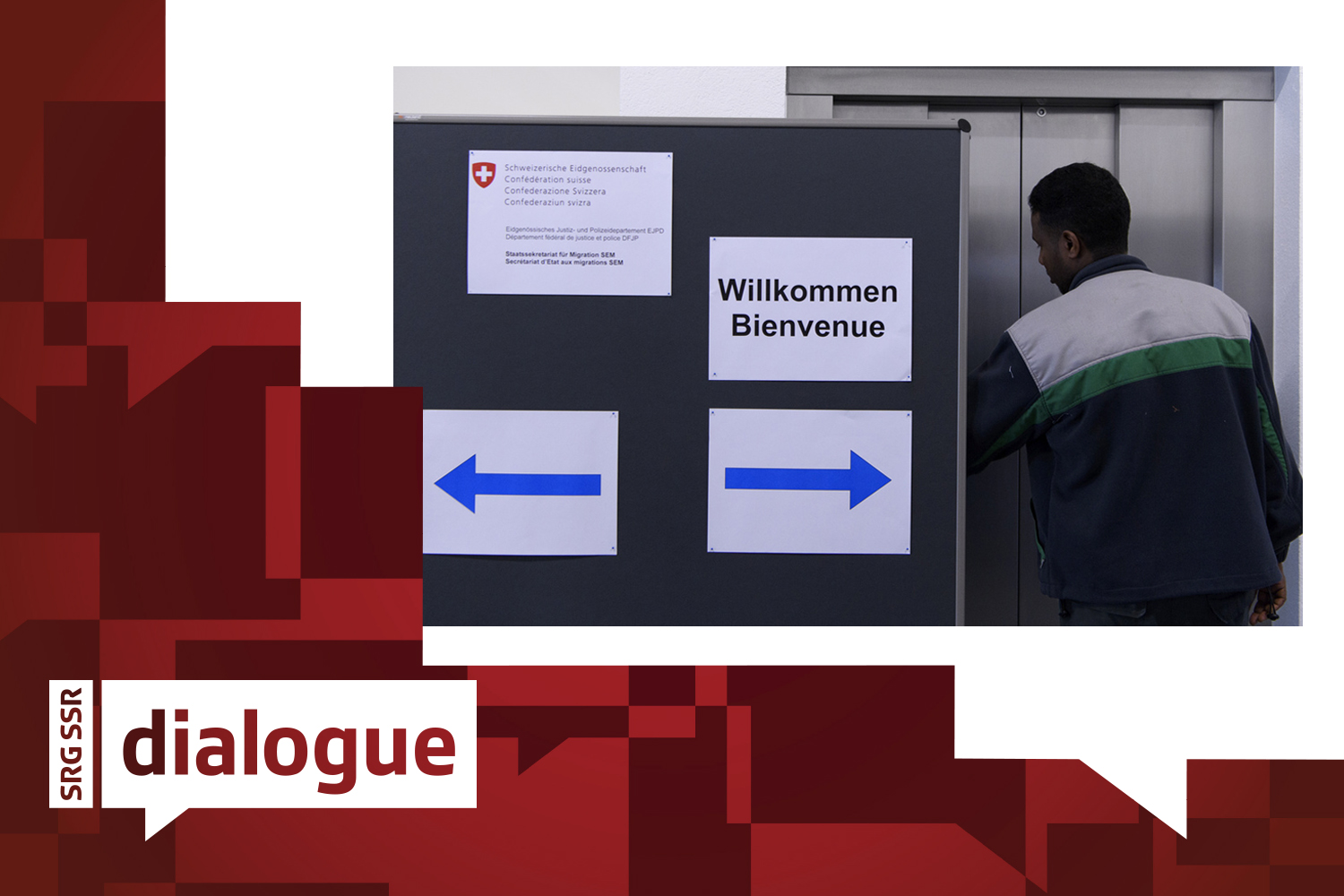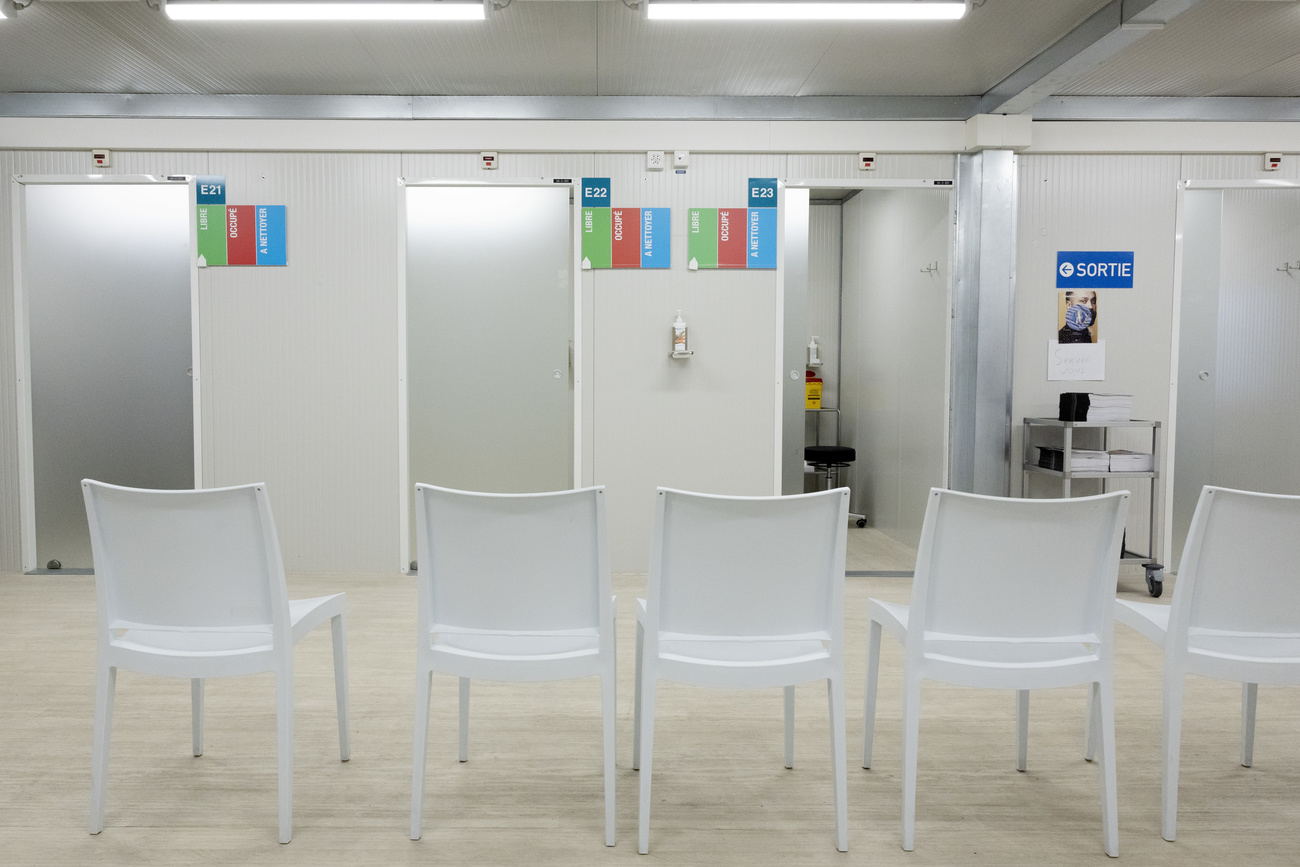
New asylum regulations come into effect in Switzerland

Several asylum-related changes come into effect in Switzerland on June 1 aimed at improving the employment and housing situations of refugees.
Do you want to read our weekly top stories? Subscribe here.
The changes also affect the training of undocumented migrants and federal support for cantonal asylum centres. From June 1, it will be easier for people who have temporary residence to move their place of residence to another canton if they work there. The change will be implemented by an amendment to the Foreign Nationals and Integration Act (FNIA).
According to the government, this will be possible if it is unreasonable to expect the person wishing to relocate to remain in their canton of residence. According to the State Secretariat for Migration (SEM), this will be possible if their journey to work is over 90 minutes, the place of work cannot be reached by public transport, it is difficult to reach, or if short-term work assignments have to be carried out.
+ Switzerland braces for 10% rise in asylum seekers in 2024
In addition, two amendments to the ordinance will come into force. Firstly, the authorisation requirement for self-employment or employment will be lifted for hardship cases as of June 1. Secondly, the obligation to register for gainful employment will be cancelled for temporarily admitted persons, refugees and stateless persons.
Restrictions on departures
However, this will only be possible if it is linked to professional integration or reintegration and the gross monthly salary of the person in question does not exceed CHF600. According to the federal government, people attending a programme to prepare for basic vocational training will generally be exempt from the obligation to register from June 1.
+ How welcoming is Switzerland for refugees?
According to the government, the revision of the FNIA adopted by parliament also includes restrictions on travelling abroad for temporarily admitted persons, asylum seekers and persons with protection status S. However, these will be implemented at a later date. This is due to the first-time activation of protection status S and the simultaneous decision by the Federal Council in March 2022 to grant freedom of travel to refugees from Ukraine.
Less school and more opportunities for education
As of June 1, rejected asylum seekers and young undocumented migrants will also be able to complete vocational training more easily thanks to a further amendment to the ordinance. In future, those affected will only have to have attended compulsory schooling in Switzerland for two years instead of the previous five years in order to be able to submit a hardship application for vocational training. In addition, the deadline for submitting such an application will be extended from one to two years.
People without a regular residence permit in Switzerland and rejected asylum seekers have been able to complete vocational training since 2013. However, parliament found that the access criteria were too strict.
From June 1, the federal government can also contribute to the operating costs for the short-term detention of people in a cantonal exit centre for a limited period of time. This is the case if an exceptionally high number of illegal border crossings and identity checks are recorded in a Swiss border region. The daily flat rate per person accommodated is a maximum of CHF100.
Parliament approved the corresponding amendment to the FNIA in December 2022. The Federal Council adopted the implementing provisions required for implementation in a related ordinance at the beginning of May 2024.

More
What is your opinion of Switzerland’s asylum system?
Adapted from Germany by DeepL/sb
This news story has been written and carefully fact-checked by an external editorial team. At SWI swissinfo.ch we select the most relevant news for an international audience and use automatic translation tools such as DeepL to translate it into English. Providing you with automatically translated news gives us the time to write more in-depth articles.
If you want to know more about how we work, have a look here, and if you have feedback on this news story please write to english@swissinfo.ch.

In compliance with the JTI standards
More: SWI swissinfo.ch certified by the Journalism Trust Initiative















































You can find an overview of ongoing debates with our journalists here . Please join us!
If you want to start a conversation about a topic raised in this article or want to report factual errors, email us at english@swissinfo.ch.